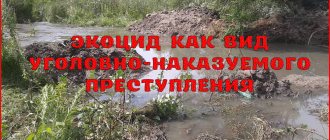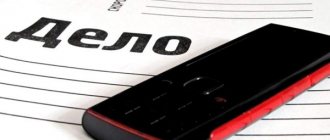A mobile phone is no longer a luxury, but an everyday means of communication. That is why the article of the Criminal Code of the Russian Federation for theft of a telephone is the most popular in practice. Mobile theft is the secret theft of a communication device, i.e. its illegal removal from the owner's property. The specified crime is considered completed at the moment of taking possession of the cell phone.
Concept and regulatory documents
Mobile theft should be understood as the gratuitous secret seizure of a device from its owner . Such actions are considered crimes of minor importance and are considered committed from the moment the attacker takes possession of the phone.
Before you find out what sentence an offender will receive for stealing a phone, you need to understand what legislation governs this process.
In this case we are talking about Article 158 of the Criminal Code of the Russian Federation. It consists of 3 parts, each of which describes the circumstances of the theft and the subsequent punishment.
Distinction from related crimes
From fraud
The difference between the two crimes is that theft is the appropriation of someone else's property, while fraud is both property and the right to it.
In addition, the first version of illegal actions involves secret entry , and the second involves the fact that the victim, through deception, personally transfers his property to the criminal;
From waste and appropriation
The difference is made regarding the distinctive characteristics of the subject.
This kind of subject is a person who legally owns one or another kind of property, which he got through a legal and civil contract, labor contract, etc., and the criminal uses these opportunities for his own benefit.
And during the theft, the subject is a person who in no way relates to the property that is stolen, and sometimes simply has access to it through his activities.
From robbery
In case of theft, the object (property) is taken secretly , and in case of robbery - openly.
In addition, there is a difference in the subjective reasons for this type of crime.
Types of punishment
The degree of responsibility of the offender and the type of punishment for phone theft depend on several factors:
- Amount of damage caused;
- The age of the person convicted of the crime (under 14 years old, from 14 to 16 years old or an adult);
- Does he have a criminal record;
- The number of participants in the theft.
Criminal liability for theft begins at the age of 14 . Persons under this age are registered with the Department of Juvenile Affairs.
At the same time, a protocol is opened against their parents under Article 5.35 of the Code of Administrative Offenses of the Russian Federation “Improper performance of parental responsibilities”, which is considered by the Commission on Minors' Affairs.
In addition, the injured party has the right to recover moral and material damage from the parents of a minor offender (Article 1073 of the Civil Code of the Russian Federation). They will also be fined from 100 to 500 rubles.
What is the penalty for stealing a mobile phone? The court may sentence the offender to the following types of punishment.
| Art. 158 of the Criminal Code of the Russian Federation | Circumstances of the theft | Punishment |
| Part 1 | “Simple” theft (the phone was pulled out of a backpack or taken from a desk at work while the owner was away) |
|
| Part 2 |
|
|
| Part 3 |
|
|
Punishment for theft of a cell phone according to the Criminal Code of the Russian Federation
Punishment for stealing a mobile phone is provided for all thieves, but what type of sanctions and how much they give for a specific crime should be clarified in each individual case. The corresponding article in the criminal legislation provides for an appropriate punishment for secret theft of someone else's equipment. If a person is accused of stealing a cell phone, the court can determine the following types of punishment for the offender:
- Financial penalty;
- Correctional work;
- Forced physical labor;
- Arrest;
- Deprivation of liberty.
Drawing up an application
How to write a report about the theft of a mobile phone? This document is drawn up in free form and contains the following information:
- Applicant details – full name, passport series and number, address and contact number (home or relative’s phone number);
- A detailed description of all the details of what happened;
- An indication of the estimated location and time of the incident (if you don’t know exactly, you can indicate the area);
- Description of the alleged criminal (full name or special characteristics of this person);
- Description of the mobile device – color, model, distinctive features (chips, cracks, decor, scratches, presence or absence of protective film or glass and case);
- IMEI is a 15-digit identification number that is assigned to each telephone and is written on the box. Upon completion of the case, this identifier will be proof that the found device belongs to you. An alternative to this number is a receipt, warranty card, technical data sheet of the product and other documents. In addition, using IMEI, the mobile operator will be able to accurately track where the criminal is located.
The application is written in 2 copies - one is given to the police officer, the second (indicating the incoming number) must remain with you.
For each application, a special check is carried out, as a result of which law enforcement agencies either initiate a criminal case on the basis of theft, or issue a decision to refuse (for example, if there was no theft, and the applicant found the phone at home/in a bag/pocket, etc. .).
Many people ask, is there any point in writing a statement if a mobile phone is stolen? Of course it makes sense!
Moreover, in most cases, the successful outcome of the case depends precisely on the efficiency of the victim, because crimes of this kind are solved only without delay.
If you have a large amount of money on your mobile account, contact your mobile operator and ask to block the number. If the phone number is linked to a bank card, and you have lost your wallet along with the device, urgently call the bank and block the cards.
How to protect yourself from phone theft
Helpful advice
If you use an expensive communication device, then under no circumstances demonstrate it to unfamiliar company, try not to keep it in sight in the evening and at night, so as not to attract undue attention. Also, do not leave a loud ringer: it is better to switch the phone to “vibrate” mode.
The best protection against phone theft, i.e. To protect against unlawful removal of a mobile device from your property is careful, careful handling of your gadget, i.e. You should not leave it unattended in crowded places, and do not put it in pockets that are inconspicuous for easy access.
After purchasing a phone, be sure to write down the IMEI numbers of your gadget in a notebook or save the packaging that contains these numbers. As a rule, such crimes are most easily solved without delay, so if you have a unique number, the phone will be quickly entered into the database in order to track activation.
Where to apply?
Where should the victim go? A statement about the theft of a phone to the police is submitted to the department that is located at the place where the crime was allegedly committed. If the duty officer refuses to accept the document, write a complaint to the prosecutor's office.
Pre-investigation actions take about 30 days. During this time, the victim has the right to find out the name of the investigator, clarify information about the progress of the investigation on this application and find out what work has been done.
Such actions stimulate law enforcement officers to take active action, because practice shows that such crimes are not a priority.
Don't rely solely on law enforcement officials . Look for the phone yourself - go to thrift stores and pawn shops, look at the ads on websites with used items.
If you see your device, contact the investigator - he is obliged to legally seize the stolen item.
Actions in case of theft
What to do if your mobile phone is stolen? First of all, you need to immediately contact the police.
There you will need to write a statement. The application is written to the head of the police department. It is better to write it in two copies. Let the police take one copy, and on the other they will mark the acceptance of the application. The victim will take the document with the mark with him.
In the application you must indicate your personal data: full name, address, contacts, passport details. All the circumstances of the theft are described in detail: where the event occurred, on what day and at what time, how the crime was committed.
If the victim saw the criminal who stole the phone, then it is necessary to describe his appearance and special features in as much detail as possible.
The loss itself is also described in detail. You must indicate the brand and exact model of the phone, its year of manufacture, and color. Maybe the mobile phone had some special features, for example, chips or cracks.
The IMEI number will be very valuable information . This is the phone ID. It can be found on the box or in the documents from the phone. The presence of this number will allow you to prove who is the owner of the found mobile phone. Cellular companies can also use it to track the location of the loss.
After accepting the complaint, the police will investigate and initiate a criminal case. It is better for the victim to immediately find out who will handle his case and periodically find out the current situation.
It would also be a good idea to block your SIM card with your mobile operator. Especially if there was a large amount of money in the account. And if a bank card was also attached to the phone number, then it is also better to temporarily block it.
What to do if there is a criminal, but no phone?
If the person who committed the crime was detained, but did not have the stolen phone with him, the injured party can go to court demanding compensation for the damage caused to him (both material and moral).
The claim should indicate the approximate amount at which you estimate the inconvenience and suffering caused to you. However, the final amount of payment will be determined by the court.
According to the legislation in force in Russia in 2021, claims must be filed during investigative actions.
If the accused can pay the cost of the stolen device before sentencing, the court will take this into account and reduce the punishment. In this case, it is better to receive money from the criminal at the police station or in the presence of a third uninterested person.
When should the investigator return the seized phone?
Hello. My daughter's phone was stolen. The thief was found and his phone was confiscated. When should the investigator return my daughter's phone?
Lawyer Antonov A.P.
Good afternoon According to Articles 81 and 82 of the Criminal Procedure Code, any objects are recognized as material evidence: 1) which served as tools, equipment or other means of committing a crime or retained traces of a crime; 2) to which the criminal actions were directed; 2.1) money, valuables and other property obtained as a result of the commission of a crime; 3) other objects and documents that can serve as means for detecting a crime and establishing the circumstances of a criminal case. The items specified in part one of this article are examined, recognized as material evidence and added to the criminal case, about which a corresponding decision is made. The procedure for storing material evidence is established by this article and Article 82 of this Code. When passing a sentence, as well as a ruling or order to terminate a criminal case, the issue of material evidence must be resolved. In this case: 1) tools, equipment or other means of committing a crime belonging to the accused are subject to confiscation, or transferred to the appropriate institutions, or destroyed; 2) items prohibited for circulation are subject to transfer to the appropriate institutions or are destroyed; 2.1) light industrial goods withdrawn from illegal circulation, the list of which is established by the Government of the Russian Federation, are subject to destruction in the manner established by the Government of the Russian Federation; 3) items that are of no value and not claimed by the party are subject to destruction, and in the event of a request from interested persons or institutions, they can be transferred to them; 4) money, valuables and other property received as a result of the commission of a crime, and income from this property are subject to return to the rightful owner; 4.1) money, valuables and other property specified in paragraphs “a” - “c” of part one of Article 104.1 of the Criminal Code of the Russian Federation are subject to confiscation in the manner established by the Government of the Russian Federation, except for the cases provided for in paragraph 4 of this part; 5) documents that are material evidence remain with the criminal case during the entire storage period of the latter or are transferred to interested parties at their request; 6) the remaining items are transferred to the legal owners, and if the latter are not identified, they become the property of the state. Disputes about the ownership of material evidence are resolved through civil proceedings. Objects, including electronic storage media, and documents seized during pre-trial proceedings but not recognized as material evidence are subject to return to the persons from whom they were seized, taking into account the requirements of Article 6.1 of this Code. Physical evidence must be kept in the criminal case until the verdict enters into legal force or until the expiration of the period for appealing the decision or ruling on termination of the criminal case and transferred along with the criminal case, except for the cases provided for in this article. In the event that a dispute over the right to property, which is material evidence, is subject to resolution through civil proceedings, the material evidence is stored until the court decision comes into force. Physical evidence in the form of: 1) items that, due to bulkiness or other reasons, cannot be stored in a criminal case, including large quantities of goods, storage of which is difficult or the costs of providing special storage conditions for which are commensurate with their value: a) photographed or are filmed or filmed, sealed if possible and, by decision of the inquiry officer or investigator, transferred for storage in accordance with the legislation of the Russian Federation in the manner established by the Government of the Russian Federation. A document on the location of such material evidence is attached to the materials of the criminal case, and a sample of material evidence sufficient for a comparative study may also be attached; b) are returned to their rightful owner, if this is possible without prejudice to evidence; c) if it is impossible to ensure their storage in the ways provided for in subparagraphs “a” and “b” of this paragraph, they are assessed and, with the consent of the owner or by court decision, transferred for sale in accordance with the legislation of the Russian Federation in the manner established by the Government of the Russian Federation. The proceeds from the sale of material evidence are credited in accordance with this part to the deposit account of the body that made the decision to confiscate said material evidence for the period provided for in part one of this article. A sample of material evidence sufficient for a comparative study may be attached to the materials of the criminal case; 1.1) large quantities of goods, the storage of which is difficult or the costs of providing special storage conditions for which are commensurate with their value, can be transferred for safekeeping to the owner; 2) perishable goods and products, as well as property subject to rapid obsolescence, the storage of which is difficult or the costs of providing special storage conditions for which are commensurate with their value: a) are returned to their owners; b) if return is impossible, they are assessed and, with the consent of the owner or by court decision, transferred for sale in accordance with the legislation of the Russian Federation in the manner established by the Government of the Russian Federation. The proceeds from the sale of material evidence are credited in accordance with this part to the deposit account of the body that made the decision to confiscate said material evidence for the period provided for in part one of this article. A sample of material evidence sufficient for a comparative study may be attached to the materials of the criminal case; c) with the consent of the owner or by court decision, they are destroyed in the manner established by the Government of the Russian Federation, if such perishable goods and products have become unusable. In this case, a protocol is drawn up in accordance with the requirements of Article 166 of this Code; 3) narcotic drugs, psychotropic substances, plants containing narcotic drugs or psychotropic substances or their precursors, or parts thereof containing narcotic drugs or psychotropic substances or their precursors, seized from illicit trafficking, as well as items the long-term storage of which is dangerous to life and health people or for the environment, after carrying out the necessary research, they are transferred for technological processing or destroyed by a court decision in the manner established by the Government of the Russian Federation, about which a protocol is drawn up in accordance with the requirements of Article 166 of this Code. A sufficient sample for comparative research of a narcotic drug, psychotropic substance, plant containing narcotic drugs or psychotropic substances or their precursors, or parts thereof containing narcotic drugs or psychotropic substances or their precursors, seized from illicit trafficking shall be attached to the materials of the criminal case; 3.1) money, valuables and other property received as a result of the commission of a crime, and income from this property discovered during investigative actions, are subject to arrest in the manner established by Article 115 of this Code; 4) valuables after carrying out the necessary investigative actions: a) are deposited with a bank or other credit organization for the period provided for in part one of this article, except for the case provided for in subparagraph “b” of this paragraph; b) are returned to their rightful owner, if this is possible without prejudice to evidence; 4.1) after the necessary investigative actions have been taken, the money is photographed or filmed and: a) returned to its rightful owner in the manner established by the Government of the Russian Federation; b) in the absence or failure to identify the legal owner, or if it is impossible to return material evidence to the legal owner for other reasons, they are deposited in the financial unit of the body that made the decision to seize said material evidence, or in a bank or other credit organization for the period provided for in part one of this articles, or are stored in a criminal case, if the individual characteristics of banknotes are important for proof; 5) electronic storage media: a) stored in sealed form under conditions that exclude the possibility of unauthorized persons becoming familiar with the information contained on them and ensuring their safety and the safety of the specified information; b) are returned to their rightful owner after inspection and other necessary investigative actions, if this is possible without prejudice to evidence; 6) light industrial goods seized from illegal circulation, the list of which is established by the Government of the Russian Federation, are transferred for destruction by court decision in the manner established by the Government of the Russian Federation, of which a protocol is drawn up in accordance with the requirements of Article 166 of this Code. A sample of light industry goods seized from illegal circulation, sufficient for comparative research, is attached to the materials of the criminal case; 7) seized in accordance with the legislation on state regulation of the production and circulation of ethyl alcohol, alcoholic and alcohol-containing products and on limiting the consumption (drinking) of alcoholic products from the illegal circulation of ethyl alcohol, alcoholic and alcohol-containing products, as well as items used for illegal production and ( or) the circulation of ethyl alcohol, alcoholic and alcohol-containing products, after carrying out the necessary research, are transferred for destruction, disposal or sale by court decision in the manner established by the Government of the Russian Federation, about which a protocol is drawn up in accordance with the requirements of Article 166 of this Code, or transferred for storage in the manner established by the Government of the Russian Federation. Funds received from the sale of material evidence are credited in accordance with this part to the deposit account of the body that made the decision to confiscate said material evidence for the period provided for in part one of this article; confiscated gaming equipment that was used in the illegal organization and (or) conduct of gambling is transferred for destruction by court decision in the manner established by the Government of the Russian Federation, of which a protocol is drawn up in accordance with the requirements of Article 166 of this Code. Photo and film materials, video recordings of material evidence, and a sample of material evidence sufficient for a comparative study may also be attached to the materials of the criminal case. 9) animals whose physical condition does not allow them to be returned to their habitat: a) photographed or filmed on video or film; by decision of the inquiry officer or investigator, they are transferred for storage in accordance with the legislation of the Russian Federation in the manner established by the Government of the Russian Federation. A document on the location of such material evidence is attached to the materials of the criminal case; b) are returned to their rightful owner, if this is possible without prejudice to evidence; c) if it is impossible to ensure their storage in the ways provided for in subparagraphs “a” and “b” of this paragraph, with the consent of the legal owner or by court decision, they are transferred free of charge for maintenance and breeding in the manner established by the Government of the Russian Federation, of which a protocol is drawn up in accordance with with the requirements of Article 166 of this Code. Materials of photo and video recording of the seized animal, as well as other information and documents containing species and individual characteristics of the animal that allow its identification (inventory number, nickname, tags and others, and, if necessary, also research results) are attached to the materials of the criminal case; d) if it is impossible to transfer free of charge for maintenance and breeding, they are assessed and, with the consent of the owner or by a court decision, transferred for sale in accordance with the legislation of the Russian Federation in the manner established by the Government of the Russian Federation. The proceeds from the sale of material evidence are credited in accordance with this part to the deposit account of the body that made the decision to confiscate said material evidence for the period provided for in part one of this article. After urgent investigative actions are taken, if it is impossible to return electronic storage media seized during investigative actions to their legal owner, the information contained on these media is copied at the request of the legal owner of the seized electronic storage media or the owner of the information contained on them. Copying of this information onto other electronic media provided by the legal owner of the seized electronic media or the owner of the information contained on them is carried out with the participation of the legal owner of the seized electronic media or the owner of the information contained on them and (or) their representatives and a specialist in the presence of attesting witnesses. division of the preliminary investigation body or in court. When copying information, conditions must be provided that exclude the possibility of its loss or change. Copying information is not allowed if it may interfere with the investigation of a crime. Electronic storage media containing copied information are transferred to the legal owner of the seized electronic storage media or the owner of the information contained on them. A protocol is drawn up on the copying of information and the transfer of electronic media containing copied information to the legal owner of the seized electronic media or the owner of the information contained on them in accordance with the requirements of Article 166 of this Code. Other conditions for storage, recording and transfer of material evidence, including their individual categories, are established by the Government of the Russian Federation. In the cases provided for in subparagraphs “a” and “b” of paragraph 1, paragraph 1.1, subparagraph “a” of paragraph 2, paragraphs 3.1, 4 and 4.1, subparagraph “b” of paragraph 5, subparagraphs “a” and “b” of paragraph 9 of Part second and part two.1 of this article, the inquiry officer, investigator or judge makes a decision. In the cases provided for by subparagraph "c" of paragraph 1, subparagraphs "b" and "c" of paragraph 2 and paragraphs 3 and 6 - 8 of part two of this article, the investigator, with the consent of the head of the investigative body or the investigator with the consent of the prosecutor, initiates proceedings before the court at the place of proceedings investigation, a corresponding petition if the owner has not given consent to the sale, disposal or destruction of the property. In the cases provided for in subparagraphs “c” and “d” of paragraph 9 of part two of this article, the investigator, with the consent of the head of the investigative body or the investigator with the consent of the prosecutor, initiates a corresponding petition before the court at the place of investigation, if the owner has not agreed to the transfer free of charge or sale physical evidence or the owner is missing or not identified. According to Articles 123-125 of the Criminal Procedure Code, actions (inaction) and decisions of the investigator, the head of the inquiry unit, the head of the inquiry body, the inquiry body, the investigator, the head of the investigative body, the prosecutor and the court can be appealed in the manner established by this Code by participants criminal proceedings, as well as other persons to the extent that the procedural actions performed and procedural decisions made affect their interests. If reasonable time limits for criminal proceedings are violated during pre-trial proceedings in a criminal case, participants in criminal proceedings, as well as other persons whose interests are affected, may contact the prosecutor or the head of the investigative body with a complaint, which must be considered in the manner and within the time limits established by Article 124 of this Code. The prosecutor or head of the investigative body considers the complaint within 3 days from the date of its receipt. In exceptional cases, when in order to verify a complaint it is necessary to request additional materials or take other measures, the complaint may be considered within 10 days, of which the applicant is notified. Based on the results of consideration of the complaint, the prosecutor or the head of the investigative body makes a decision to fully or partially satisfy the complaint or to refuse to satisfy it. If a complaint filed in accordance with part two of Article 123 of this Code is satisfied, the resolution must indicate the procedural actions taken to speed up the consideration of the case and the deadlines for their implementation. The applicant must be immediately notified of the decision made on the complaint and the further procedure for appealing it. In cases provided for by this Code, the inquiry officer or investigator has the right to appeal the actions (inaction) and decisions of the prosecutor or the head of the investigative body, respectively, to a higher prosecutor or the head of a higher investigative body. Resolutions of the inquiry body, the inquirer, the investigator, the head of the investigative body on the refusal to initiate a criminal case, on the termination of the criminal case, as well as other actions (inaction) and decisions of the inquirer, the head of the inquiry unit, the head of the inquiry body, the inquiry body, the investigator, the head of the investigative body and the prosecutor, who are capable of causing damage to the constitutional rights and freedoms of participants in criminal proceedings or complicate citizens' access to justice, can be appealed to the district court at the place where the act containing elements of a crime was committed. If the place of conduct of the preliminary investigation is determined in accordance with parts two to six of Article 152 of this Code, complaints about the actions (inaction) and decisions of these persons are considered by the district court at the location of the body in charge of the criminal case. The complaint may be filed with the court by the applicant, his defense attorney, legal representative or representative directly or through the investigator, head of the inquiry unit, head of the inquiry agency, inquiry agency, investigator, head of the investigative agency or prosecutor. The judge checks the legality and validity of the actions (inaction) and decisions of the investigator, the head of the inquiry unit, the head of the inquiry body, the inquiry body, the investigator, the head of the investigative body, the prosecutor no later than 5 days from the date of receipt of the complaint in a court hearing with the participation of the applicant and his defense attorney , legal representative or representative, if they are involved in a criminal case, other persons whose interests are directly affected by the appealed action (inaction) or decision, as well as with the participation of the prosecutor, investigator, head of the investigative body. The failure to appear of persons who were timely notified of the time for consideration of the complaint and who do not insist on its consideration with their participation is not an obstacle to the consideration of the complaint by the court. Complaints subject to consideration by the court are considered in open court, with the exception of cases provided for in part two of Article 241 of this Code. At the beginning of the court session, the judge announces which complaint is to be considered, introduces himself to the persons appearing at the court session, and explains their rights and obligations. Then the applicant, if he participates in the court session, substantiates the complaint, after which other persons who appeared at the court session are heard. The applicant is given the opportunity to make a statement. Based on the results of consideration of the complaint, the judge makes one of the following decisions: 1) recognizing the action (inaction) or decision of the relevant official as illegal or unfounded and on his obligation to eliminate the violation; 2) about leaving the complaint without satisfaction. Copies of the judge's decision are sent to the applicant, the prosecutor and the head of the investigative body. The filing of a complaint does not suspend the production of the appealed action and the execution of the appealed decision, unless the inquiry officer, the head of the inquiry unit, the head of the inquiry body, the inquiry body, the investigator, the head of the investigative body, the prosecutor or the judge find it necessary to do so. In this case, your stay in a correctional facility for such a long time was illegal. You can file a complaint with the prosecutor's office or court, or file an application to initiate criminal proceedings against the administration of the correctional institution. Thus, as a general rule, physical evidence is stored in the case file until the court verdict comes into force, however, in your situation, it can be returned earlier after inspection and examination (if one is appointed).
According to Articles 81 and 82 of the Criminal Procedure Code, any objects are recognized as material evidence: 1) which served as tools, equipment or other means of committing a crime or retained traces of a crime; 2) to which the criminal actions were directed; 2.1) money, valuables and other property obtained as a result of the commission of a crime; 3) other objects and documents that can serve as means for detecting a crime and establishing the circumstances of a criminal case. The items specified in part one of this article are examined, recognized as material evidence and added to the criminal case, about which a corresponding decision is made. The procedure for storing material evidence is established by this article and Article 82 of this Code. When passing a sentence, as well as a ruling or order to terminate a criminal case, the issue of material evidence must be resolved. In this case: 1) tools, equipment or other means of committing a crime belonging to the accused are subject to confiscation, or transferred to the appropriate institutions, or destroyed; 2) items prohibited for circulation are subject to transfer to the appropriate institutions or are destroyed; 2.1) light industrial goods withdrawn from illegal circulation, the list of which is established by the Government of the Russian Federation, are subject to destruction in the manner established by the Government of the Russian Federation; 3) items that are of no value and not claimed by the party are subject to destruction, and in the event of a request from interested persons or institutions, they can be transferred to them; 4) money, valuables and other property received as a result of the commission of a crime, and income from this property are subject to return to the rightful owner; 4.1) money, valuables and other property specified in paragraphs “a” - “c” of part one of Article 104.1 of the Criminal Code of the Russian Federation are subject to confiscation in the manner established by the Government of the Russian Federation, except for the cases provided for in paragraph 4 of this part; 5) documents that are material evidence remain with the criminal case during the entire storage period of the latter or are transferred to interested parties at their request; 6) the remaining items are transferred to the legal owners, and if the latter are not identified, they become the property of the state. Disputes about the ownership of material evidence are resolved through civil proceedings. Objects, including electronic storage media, and documents seized during pre-trial proceedings but not recognized as material evidence are subject to return to the persons from whom they were seized, taking into account the requirements of Article 6.1 of this Code. Physical evidence must be kept in the criminal case until the verdict enters into legal force or until the expiration of the period for appealing the decision or ruling on termination of the criminal case and transferred along with the criminal case, except for the cases provided for in this article. In the event that a dispute over the right to property, which is material evidence, is subject to resolution through civil proceedings, the material evidence is stored until the court decision comes into force. Physical evidence in the form of: 1) items that, due to bulkiness or other reasons, cannot be stored in a criminal case, including large quantities of goods, storage of which is difficult or the costs of providing special storage conditions for which are commensurate with their value: a) photographed or are filmed or filmed, sealed if possible and, by decision of the inquiry officer or investigator, transferred for storage in accordance with the legislation of the Russian Federation in the manner established by the Government of the Russian Federation. A document on the location of such material evidence is attached to the materials of the criminal case, and a sample of material evidence sufficient for a comparative study may also be attached; b) are returned to their rightful owner, if this is possible without prejudice to evidence; c) if it is impossible to ensure their storage in the ways provided for in subparagraphs “a” and “b” of this paragraph, they are assessed and, with the consent of the owner or by court decision, transferred for sale in accordance with the legislation of the Russian Federation in the manner established by the Government of the Russian Federation. The proceeds from the sale of material evidence are credited in accordance with this part to the deposit account of the body that made the decision to confiscate said material evidence for the period provided for in part one of this article. A sample of material evidence sufficient for a comparative study may be attached to the materials of the criminal case; 1.1) large quantities of goods, the storage of which is difficult or the costs of providing special storage conditions for which are commensurate with their value, can be transferred for safekeeping to the owner; 2) perishable goods and products, as well as property subject to rapid obsolescence, the storage of which is difficult or the costs of providing special storage conditions for which are commensurate with their value: a) are returned to their owners; b) if return is impossible, they are assessed and, with the consent of the owner or by court decision, transferred for sale in accordance with the legislation of the Russian Federation in the manner established by the Government of the Russian Federation. The proceeds from the sale of material evidence are credited in accordance with this part to the deposit account of the body that made the decision to confiscate said material evidence for the period provided for in part one of this article. A sample of material evidence sufficient for a comparative study may be attached to the materials of the criminal case; c) with the consent of the owner or by court decision, they are destroyed in the manner established by the Government of the Russian Federation, if such perishable goods and products have become unusable. In this case, a protocol is drawn up in accordance with the requirements of Article 166 of this Code; 3) narcotic drugs, psychotropic substances, plants containing narcotic drugs or psychotropic substances or their precursors, or parts thereof containing narcotic drugs or psychotropic substances or their precursors, seized from illicit trafficking, as well as items the long-term storage of which is dangerous to life and health people or for the environment, after carrying out the necessary research, they are transferred for technological processing or destroyed by a court decision in the manner established by the Government of the Russian Federation, about which a protocol is drawn up in accordance with the requirements of Article 166 of this Code. A sufficient sample for comparative research of a narcotic drug, psychotropic substance, plant containing narcotic drugs or psychotropic substances or their precursors, or parts thereof containing narcotic drugs or psychotropic substances or their precursors, seized from illicit trafficking shall be attached to the materials of the criminal case; 3.1) money, valuables and other property received as a result of the commission of a crime, and income from this property discovered during investigative actions, are subject to arrest in the manner established by Article 115 of this Code; 4) valuables after carrying out the necessary investigative actions: a) are deposited with a bank or other credit organization for the period provided for in part one of this article, except for the case provided for in subparagraph “b” of this paragraph; b) are returned to their rightful owner, if this is possible without prejudice to evidence; 4.1) after the necessary investigative actions have been taken, the money is photographed or filmed and: a) returned to its rightful owner in the manner established by the Government of the Russian Federation; b) in the absence or failure to identify the legal owner, or if it is impossible to return material evidence to the legal owner for other reasons, they are deposited in the financial unit of the body that made the decision to seize said material evidence, or in a bank or other credit organization for the period provided for in part one of this articles, or are stored in a criminal case, if the individual characteristics of banknotes are important for proof; 5) electronic storage media: a) stored in sealed form under conditions that exclude the possibility of unauthorized persons becoming familiar with the information contained on them and ensuring their safety and the safety of the specified information; b) are returned to their rightful owner after inspection and other necessary investigative actions, if this is possible without prejudice to evidence; 6) light industrial goods seized from illegal circulation, the list of which is established by the Government of the Russian Federation, are transferred for destruction by court decision in the manner established by the Government of the Russian Federation, of which a protocol is drawn up in accordance with the requirements of Article 166 of this Code. A sample of light industry goods seized from illegal circulation, sufficient for comparative research, is attached to the materials of the criminal case; 7) seized in accordance with the legislation on state regulation of the production and circulation of ethyl alcohol, alcoholic and alcohol-containing products and on limiting the consumption (drinking) of alcoholic products from the illegal circulation of ethyl alcohol, alcoholic and alcohol-containing products, as well as items used for illegal production and ( or) the circulation of ethyl alcohol, alcoholic and alcohol-containing products, after carrying out the necessary research, are transferred for destruction, disposal or sale by court decision in the manner established by the Government of the Russian Federation, about which a protocol is drawn up in accordance with the requirements of Article 166 of this Code, or transferred for storage in the manner established by the Government of the Russian Federation. Funds received from the sale of material evidence are credited in accordance with this part to the deposit account of the body that made the decision to confiscate said material evidence for the period provided for in part one of this article; confiscated gaming equipment that was used in the illegal organization and (or) conduct of gambling is transferred for destruction by court decision in the manner established by the Government of the Russian Federation, of which a protocol is drawn up in accordance with the requirements of Article 166 of this Code. Photo and film materials, video recordings of material evidence, and a sample of material evidence sufficient for a comparative study may also be attached to the materials of the criminal case. 9) animals whose physical condition does not allow them to be returned to their habitat: a) photographed or filmed on video or film; by decision of the inquiry officer or investigator, they are transferred for storage in accordance with the legislation of the Russian Federation in the manner established by the Government of the Russian Federation. A document on the location of such material evidence is attached to the materials of the criminal case; b) are returned to their rightful owner, if this is possible without prejudice to evidence; c) if it is impossible to ensure their storage in the ways provided for in subparagraphs “a” and “b” of this paragraph, with the consent of the legal owner or by court decision, they are transferred free of charge for maintenance and breeding in the manner established by the Government of the Russian Federation, of which a protocol is drawn up in accordance with with the requirements of Article 166 of this Code. Materials of photo and video recording of the seized animal, as well as other information and documents containing species and individual characteristics of the animal that allow its identification (inventory number, nickname, tags and others, and, if necessary, also research results) are attached to the materials of the criminal case; d) if it is impossible to transfer free of charge for maintenance and breeding, they are assessed and, with the consent of the owner or by a court decision, transferred for sale in accordance with the legislation of the Russian Federation in the manner established by the Government of the Russian Federation. The proceeds from the sale of material evidence are credited in accordance with this part to the deposit account of the body that made the decision to confiscate said material evidence for the period provided for in part one of this article. After urgent investigative actions are taken, if it is impossible to return electronic storage media seized during investigative actions to their legal owner, the information contained on these media is copied at the request of the legal owner of the seized electronic storage media or the owner of the information contained on them. Copying of this information onto other electronic media provided by the legal owner of the seized electronic media or the owner of the information contained on them is carried out with the participation of the legal owner of the seized electronic media or the owner of the information contained on them and (or) their representatives and a specialist in the presence of attesting witnesses. division of the preliminary investigation body or in court. When copying information, conditions must be provided that exclude the possibility of its loss or change. Copying information is not allowed if it may interfere with the investigation of a crime. Electronic storage media containing copied information are transferred to the legal owner of the seized electronic storage media or the owner of the information contained on them. A protocol is drawn up on the copying of information and the transfer of electronic media containing copied information to the legal owner of the seized electronic media or the owner of the information contained on them in accordance with the requirements of Article 166 of this Code. Other conditions for storage, recording and transfer of material evidence, including their individual categories, are established by the Government of the Russian Federation. In the cases provided for in subparagraphs “a” and “b” of paragraph 1, paragraph 1.1, subparagraph “a” of paragraph 2, paragraphs 3.1, 4 and 4.1, subparagraph “b” of paragraph 5, subparagraphs “a” and “b” of paragraph 9 of Part second and part two.1 of this article, the inquiry officer, investigator or judge makes a decision. In the cases provided for by subparagraph "c" of paragraph 1, subparagraphs "b" and "c" of paragraph 2 and paragraphs 3 and 6 - 8 of part two of this article, the investigator, with the consent of the head of the investigative body or the investigator with the consent of the prosecutor, initiates proceedings before the court at the place of proceedings investigation, a corresponding petition if the owner has not given consent to the sale, disposal or destruction of the property. In the cases provided for in subparagraphs “c” and “d” of paragraph 9 of part two of this article, the investigator, with the consent of the head of the investigative body or the investigator with the consent of the prosecutor, initiates a corresponding petition before the court at the place of investigation, if the owner has not agreed to the transfer free of charge or sale physical evidence or the owner is missing or not identified. According to Articles 123-125 of the Criminal Procedure Code, actions (inaction) and decisions of the investigator, the head of the inquiry unit, the head of the inquiry body, the inquiry body, the investigator, the head of the investigative body, the prosecutor and the court can be appealed in the manner established by this Code by participants criminal proceedings, as well as other persons to the extent that the procedural actions performed and procedural decisions made affect their interests. If reasonable time limits for criminal proceedings are violated during pre-trial proceedings in a criminal case, participants in criminal proceedings, as well as other persons whose interests are affected, may contact the prosecutor or the head of the investigative body with a complaint, which must be considered in the manner and within the time limits established by Article 124 of this Code. The prosecutor or head of the investigative body considers the complaint within 3 days from the date of its receipt. In exceptional cases, when in order to verify a complaint it is necessary to request additional materials or take other measures, the complaint may be considered within 10 days, of which the applicant is notified. Based on the results of consideration of the complaint, the prosecutor or the head of the investigative body makes a decision to fully or partially satisfy the complaint or to refuse to satisfy it. If a complaint filed in accordance with part two of Article 123 of this Code is satisfied, the resolution must indicate the procedural actions taken to speed up the consideration of the case and the deadlines for their implementation. The applicant must be immediately notified of the decision made on the complaint and the further procedure for appealing it. In cases provided for by this Code, the inquiry officer or investigator has the right to appeal the actions (inaction) and decisions of the prosecutor or the head of the investigative body, respectively, to a higher prosecutor or the head of a higher investigative body. Resolutions of the inquiry body, the inquirer, the investigator, the head of the investigative body on the refusal to initiate a criminal case, on the termination of the criminal case, as well as other actions (inaction) and decisions of the inquirer, the head of the inquiry unit, the head of the inquiry body, the inquiry body, the investigator, the head of the investigative body and the prosecutor, who are capable of causing damage to the constitutional rights and freedoms of participants in criminal proceedings or complicate citizens' access to justice, can be appealed to the district court at the place where the act containing elements of a crime was committed. If the place of conduct of the preliminary investigation is determined in accordance with parts two to six of Article 152 of this Code, complaints about the actions (inaction) and decisions of these persons are considered by the district court at the location of the body in charge of the criminal case. The complaint may be filed with the court by the applicant, his defense attorney, legal representative or representative directly or through the investigator, head of the inquiry unit, head of the inquiry agency, inquiry agency, investigator, head of the investigative agency or prosecutor. The judge checks the legality and validity of the actions (inaction) and decisions of the investigator, the head of the inquiry unit, the head of the inquiry body, the inquiry body, the investigator, the head of the investigative body, the prosecutor no later than 5 days from the date of receipt of the complaint in a court hearing with the participation of the applicant and his defense attorney , legal representative or representative, if they are involved in a criminal case, other persons whose interests are directly affected by the appealed action (inaction) or decision, as well as with the participation of the prosecutor, investigator, head of the investigative body. The failure to appear of persons who were timely notified of the time for consideration of the complaint and who do not insist on its consideration with their participation is not an obstacle to the consideration of the complaint by the court. Complaints subject to consideration by the court are considered in open court, with the exception of cases provided for in part two of Article 241 of this Code. At the beginning of the court session, the judge announces which complaint is to be considered, introduces himself to the persons appearing at the court session, and explains their rights and obligations. Then the applicant, if he participates in the court session, substantiates the complaint, after which other persons who appeared at the court session are heard. The applicant is given the opportunity to make a statement. Based on the results of consideration of the complaint, the judge makes one of the following decisions: 1) recognizing the action (inaction) or decision of the relevant official as illegal or unfounded and on his obligation to eliminate the violation; 2) about leaving the complaint without satisfaction. Copies of the judge's decision are sent to the applicant, the prosecutor and the head of the investigative body. The filing of a complaint does not suspend the production of the appealed action and the execution of the appealed decision, unless the inquiry officer, the head of the inquiry unit, the head of the inquiry body, the inquiry body, the investigator, the head of the investigative body, the prosecutor or the judge find it necessary to do so. In this case, your stay in a correctional facility for such a long time was illegal. You can file a complaint with the prosecutor's office or court, or file an application to initiate criminal proceedings against the administration of the correctional institution. Thus, as a general rule, physical evidence is stored in the case file until the court verdict comes into force, however, in your situation, it can be returned earlier after inspection and examination (if one is appointed).
Still have questions for your lawyer?
Ask them right now here, or call us by phone in Moscow +7 (499) 288-34-32 or in Samara +7 (846) 212-99-71 (24 hours a day), or come to our office for a consultation (by pre-registration)!
What to do with a found phone?
Can they go to jail or apply any other penalty if the device is found?
To protect yourself from big problems with the law, follow this scheme:
- If you find a phone in a vehicle or premises (shop, cinema, entertainment center, etc.), give it to the driver, seller, administrator, owner of the premises or other authorized person;
- If you stumble upon a find in the middle of the street, try to find the owner among passers-by (perhaps he did not have time to go too far or is looking for the loss himself) or call the numbers listed in the phone book.
The best option is to take the found device to the police and file a statement about the find.
Owner's threats
If you are talking with the owner of the phone and he throws accusations at you, do not be afraid of threats, just give him the device you found and advise him not to lose it again.
From this moment on, the owner loses all grounds for accusing you of theft.
Also read: Judicial practice on sentencing under Article 158 of the Criminal Code of the Russian Federation: court decisions on thefts
If you really found the device, but despite all your arguments, the owner of the property and the police insist on their own, write a statement of slander (Article 128. 1 of the Criminal Code). Understanding that it is easy to turn from an accuser into an accused person sobers up people who are intemperate in their language.
How to return a stolen phone - complete instructions:
Ways to protect your mobile device
How to protect your phone from theft? There is only one way out - keep it with you and carefully monitor your own things.
But in order to protect personal information and make using a stolen device almost impossible, there are many more ways:
- Remote blocking - invented by Apple, allows you to block phone functions even at long distances, you can download it in any application store;
- Fingerprints – used to unlock the device; the scanner recognizes only those fingerprints that are entered into its database;
- Sound alarm – downloaded from the app store, works even on cheap models;
- Password in the charger - does not accept someone else's charge, is one of the most radical ways to protect mobile phones from theft;
- Installing a bright green display backlight – gives the gadget the appearance of an old monochrome model that is no longer in demand;
- Registering the device with the telecom operator - in this case, the operator will start blocking the phone by imei after theft. This will make it inactive even after changing the SIM card. True, after blocking, not only the thief, but also the legal owner will not be able to use the mobile phone for its intended purpose;
- Blocking a phone number will make making calls and banking transactions problematic;
- Using a complex PIN and screen lock;
- Application of ultraviolet marks - done with special ink, makes mobile identification easier.
Now you know what the consequences of phone theft will be, and you will be able to protect your rights if they are violated. Be attentive to your own things and give up the idea of appropriating someone else’s!









